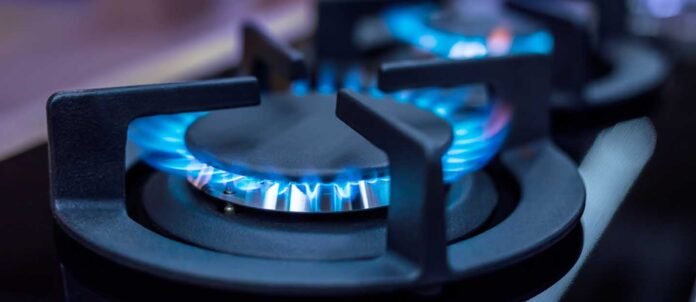Don’t choose the wrong tools for your kitchen; instead, choose the right ones. Gas stoves and ovens have been in our kitchens for many years. But when induction ranges came along, everything changed. You might have strong feelings about what kind of stove you want in your home.
But it’s important to weigh the pros and cons of a new gas connection and stove connection before making a final
decision. Now, most kitchens have electric ovens and stoves. So which should you choose?
Let this post help you decide. We’ll look at the pros and cons of gas ranges and electric ranges, as well as the prices of each, side by side.
Content to explore
- How to use a gas stove
- What makes an electric stove work
- Gas stove pros
- Gas stove cons
- The pros of using an electric stove to cook
- Electric stoves have some drawbacks
- Compare the prices of both
How to use a gas stove
Natural gas and liquid petroleum gas are the two most common types (LPG). Most people use natural gas, which comes from a network of pipelines. In places where there is no natural gas, people use LPG, which is kept in gas cylinders.
What makes an electric stove work
Most gas stoves don’t have flames; they use natural gas or propane instead (which burns). Electric stoves don’t have flames like gas stoves do. Instead, they use a heating system that is built-in and works with alternating current. Induction stoves are one of the most modern types of electric cooktops. Most induction cooktops have surfaces made of glass or ceramic.
Gas stove pros
- In favor of gas stoves: you can change the heat and temperature right away.
- Not need as much time to get warm.
- Electric options are more expensive.
- Gas stovetops make it easy to change the heat and temperature right away. You can quickly turn the flame up or down. Unlike electric stoves, it might not take any extra time to heat up or cool down.
Gas stove cons
First of all, it’s more dangerous than a gas stove. That’s because if you aren’t careful, the strong wind could blow you away. And a gas leak is always a possibility (read our blog post on how to detect and prevent gas leaks.) If you live where there is a lot of fresh air, the fire might go out.
The pros of using an electric stove to cook
One of the biggest differences between gas and electric stoves is that an electric stove uses induction heating, which makes it more efficient than a gas stove. When it comes to cooking temperatures staying the same, electric ranges are always better than gas stoves. Electric stoves can look modern and stylish, making them a nice addition to any kitchen design.
Electric stoves have some drawbacks
- Having an electric stove at home has some major drawbacks.
- The price will be the first thing you notice. Electric ovens cost more than gas ovens and could cause your electricity bill to go up.
- The second big problem is how long it takes to cook. Because there is no flame, electric ovens take longer to cook food than gas ovens.
- The surface is the third big problem. Glass-ceramic stovetops can get scratched or stained easily, which can make your kitchen look bad.
Compare the prices of both
Before you hook up your kitchen’s electricity and gas stove, you need to give it some thought. When you turn off a gas stove, you could cause an accident. Electric stoves are more popular than gas stoves because they are easier to clean and keep the heat steady. We’ll now look at how much both gas and electric stoves cost. It’s also important to think about when deciding between a gas stove and an electric one.
Most of the time, gas is cheaper than electricity, but there are a few times when electricity is cheaper. If you plan to stay in one place for a while, it might make sense to install a gas line and save money. But if you don’t know if you’ll stay in your house for a long time or if you want to move around, electricity might be a better choice.
Conclusion
Gas stoves have been around for a long time, and many people like to cook with them. But electric stoves are more common in homes these days, and we’ve already talked about the pros, and cons. And prices you should think about when choosing between the two before a new gas connection.
Most of the time, gas is cheaper than electricity, but there are a few times when electricity is cheaper. But if you don’t know if you’ll stay in your house for a long time or if you want to move around, electricity might be a better choice.
